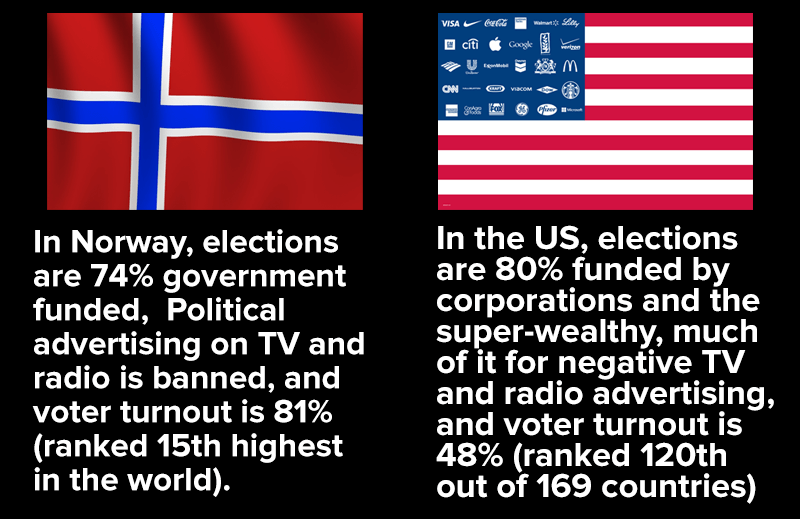Democracy Matters

Given the facts presented on the left, which country would you suspect has a stronger democracy? How is the strength of “government by the people” likely to play out in the individual lives of the people who live in each country? In your response, consider things like healthcare, education, environmental stewardship, gun safety, incarceration rate, and equitable wealth distribution.
Some countries measure their “gross domestic happiness,” meaning the average level of overall life satisfaction. Can you speculate as to which country has the higher “GDH?” (The answer is linked here, but no peeking until you’ve made your guess.)
In closing your response, comment on any correlation you believe may exist between happiness and productivity in a certain society. Do you believe the country you chose as “happier” is also more productive, on the basis of GDP per capita? (Again, here’s the answer. No peeking.)
If you didn’t learn anything from this about the importance of a strong democracy and how it’s achieved, there is no value whatsoever in applying to this school; please look elsewhere.


Craig,
I suppose if you design your questions to receive the answer you want, especially if you rig your “facts” selectively, you can achieve any result.
There is no sensible comparison between small, historically tight knit, constitutional monarchies and a huge, highly diversified nation with a long history of internal conflict and governed by a constitution allowing an Executive Presidency, Congress and States.
It’s also absurd to base your argument on a list so inaccurate it identifies the Falkland Islands as a “Country”.
I guess given your lack of commitment to reality, you also include as “fact” that 80% of US electoral funding is provided by corporation and the super wealthy.
Again,this just isn’t true, but hey that won’t deter you from repeating and repeating a convenient myth!
Norway doesn’t need funding to elect a Head of State, since the King is not elected. The King is also Commander-in-Chief and head of the Church of Norway. The complicated Sainte-Laguë electoral method provides for a proportionally elected,unicameral House of Representatives,( no Senate). this method allows for a some of the 169 members of parliament to represent as few as 9,000 voters.
Compare that to a US Senator who may represent as many as 15 million ! Or a House of Representatives member with hundreds of thousands of voters.
Simplistic comparisons are absurd.
https://www.opensecrets.org/resources/dollarocracy/04.php